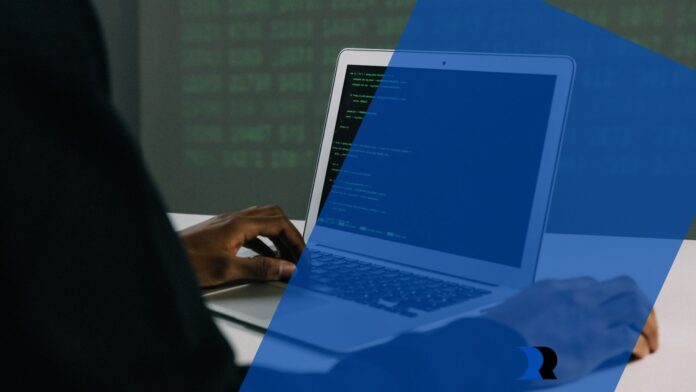Technological advancements have led us into a new world. Today, we have the capacity to do things that our ancestors could not even imagine. Whether it is simple things such as being able to speak to someone sitting miles away or complicated transactions such as sending thousands of dollars across continents, all of this can be achieved instantly with the click of a button.
That being said, this digital revolution has not come upon us without a price. There are many newfound challenges that the digital age has brought along with it, not the least of which is cybercrime. Cybercrime is a new form of criminal activity that uses technology to its advantage. As time changes, criminals have gotten creative and come up with new illegal activities they can engage in through technology, such as hacking, identity theft, and impersonation.
Cybercrime is extremely dangerous as technology has given criminals access to avenues previously unimaginable. Therefore, it is necessary to tackle this new social evil and protect technology users from cybercrime attacks. To meet this need, the field of cybersecurity has been introduced.
What Is Cybersecurity?
Cybercrime not only harms the target victims but also poses a serious danger to society as a whole. On the economic end alone, the world loses trillions of dollars to cybercrime every year.
These losses further substantiate that there is a dire need to fight back against cybercrime. Cybersecurity as an industry is aimed at doing just that by protecting digital data against cybercrime attacks. In a fast-paced and evolving industry, cybersecurity experts are expected to move just as fast as cybercriminals and match their pace. Due to the increase in digital data and cyber attacks, cyber security job growth is extremely high.
Cybersecurity revolves primarily around two things. The first is making digital systems stronger, and the second is assessing vulnerabilities in a network system that can be taken advantage of by cybercriminals. By strengthening systems on these two fronts, cybersecurity experts provide protection against cybercrime to individuals and organizations.
In this article, we discuss some of the most important tech skills you need to work in cybersecurity.
1. Coding
The most basic tech skill needed for working in cybersecurity is coding. Simply put, coding is designing computer programs that can perform tasks. There are many different languages used in coding, such as C, C++, Javascript, and SQL, which computers can understand through binary code.

IT professionals that are well-versed in these languages can use them to develop software and applications, among many other things. For cybersecurity experts, mere coding is not sufficient. They must also be experts in scripting, a form of non-static coding. As opposed to regular coding, you can use scripting to move images and text. The most popular scripting languages are Python and Powershell.
2. Network Security
Cybersecurity revolves around strengthening network systems; hence, network security is a core skill required for cybersecurity. Network security control focuses on making a network more robust so that it is better able to fend off attacks. This is done using various tools such as a firewall, which is software or hardware that blocks incoming network traffic to detect malware and other cybercrime tools from infiltrating the network system.
Cybersecurity experts must be familiar with all network security tools and measures, from understanding the working of routers to managing and implementing virtual private networks (VPNs) and intrusion detection systems (IDS). Using these tools, cybersecurity professionals can detect potential attacks and prevent unauthorized access to the system.
3. Cloud Security
There are many cloud platforms used worldwide, such as AWS and Azure. Using these platforms is beneficial in more ways than one. For instance, the cloud can be accessed by many different people simultaneously. This makes it easy to share information and collaborate. However, the cloud is a controversial aspect of technology. While some people swear by the cloud and claim it to be a revolutionary tool for managing data, others are very wary of its usage.
To protect the former and convert the latter, cybersecurity experts are required to learn cloud security. Cloud security has become even more popular since the rise of remote work as companies have a dire need to protect their data. Cybersecurity professionals need to know how to build secure systems on the cloud that can help protect the data and software stored therein.
4. Incident Response
Incident response is another highly coveted tech skill in high demand for cybersecurity professionals. There is only so much you can do on the preventive end.
As with all forms of security, cybersecurity is not 100% robust, especially with cybercrime experts working day and night to develop more malicious software and explore new avenues to exploit. Therefore, it is important to learn how to do damage control through incident response.
Incident response skills revolve around timely responding to cyber attacks to minimize damage and remove malicious software from the system. Cybersecurity experts must know how to develop robust incident response plans. In addition, they must have the technical skills required for early detection of malware and cyberattacks to ensure minimal data loss.
5. Cyber Threat Intelligence
There is no shortage of cyber threats out there, and cybersecurity experts spend a lot of time understanding the intricacies of the attack before they can stop it. One skill that allows those working in cybersecurity to fend off attacks quickly is detailed knowledge of cyber threats. By being familiar with the workings of a cyber threat, they can use its loopholes and gaps to eradicate it more quickly.

Cybersecurity intelligence is less a tech skill and more a specialized knowledge set. It is acquired by undertaking a deep study of malware and other software used in cybercrime to understand how they work and which network weaknesses they take advantage of. This helps cybersecurity experts learn how to strengthen a network and enables them to put up a better fight in case of an attack.
6. DevOps
It is fairly easy to develop software and applications nowadays. However, a common problem that developers face is that their programs are highly vulnerable to cybersecurity risks. Therefore, they rely on cybersecurity experts to help create safer digital applications. These experts use their technical skills to rectify any weaknesses in the programs, thereby increasing their resistance against cyber attacks.
Since improving the strength of computer programs requires understanding how they work, cybersecurity experts working on such tasks require detailed knowledge of how these applications are developed and operate. This is why DevOps is an important skill for cybersecurity experts to have.
Conclusion
Cybersecurity is a constantly evolving field that requires you to remain continuously updated with industry developments and technology updates. However, the above six skills are a great start to making a career in cybersecurity.


